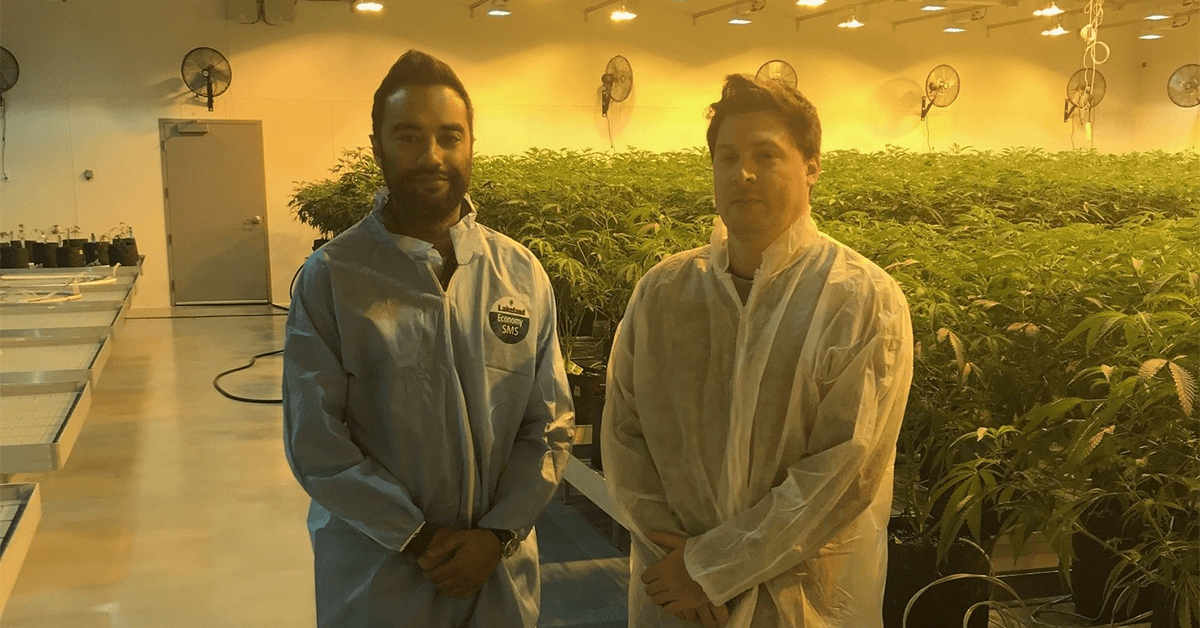Council Member Advocates for Restrictions on Cannabis Billboards in Detroit

In an effort to regulate the prevalence of cannabis-related advertisements in Detroit, Council Member Angela Whitfield Calloway has initiated a proposal to cap the number of cannabis billboards within the city. The proposed measure, set to be introduced at the upcoming council meeting, will request the city's Legislative Policy Department to develop a report outlining potential restrictions on such billboards.
Calloway voiced her concerns regarding the proliferation of cannabis billboards, particularly criticizing the advertising tactics of the cannabis dispensary Leaf & Bud, operated by CEO Mark Savaya. A particular billboard near the Southfield Freeway on 8 Mile Road—prominently advertising "Free Weed"—has been singled out by Calloway as possibly violating local advertising ordinances. "I believe the 'weed, come and get it it's free' is violating ordinances. I'm not sure but I'm in conversations with an attorney," Calloway stated.
This initiative is supported by fellow council member Scott Benson, with whom Calloway is collaborating to draft an ordinance to potentially ban such signage. Referencing measures already adopted by other cities across the country, Calloway expressed optimism about similar regulations being implemented in Detroit: "So, if they can do it in other communities across the country, we can do it here in Detroit. And I am hopeful that what you see today, you will not see next year this time."
The issue of cannabis advertising has also resonated within the community, underscored by an 11-year-old's recent appearance before the council to discuss the impact of seeing numerous cannabis advertisements on his daily route to school.
Further elevating the concern over cannabis exposure among youth, Detroit Public Schools Community District Superintendent Nikolai Vitti reached out to Michigan Governor Gretchen Whitmer and Detroit Mayor Mike Duggan. In his letter, Vitti urged stronger regulations to curb the accessibility of marijuana edibles and vape pens to students, highlighting recurring incidents requiring medical intervention.
Family Fun and Adult Leisure Blend at Royal Oak's Upcoming Taco Fest

The Royal Oak Taco Fest, a thriving community event now in its third year, is poised to introduce several new features this summer, headlined by the much-anticipated integration of a cannabis sales and consumption area. Slated to run from July 4th through July 7th, the Taco Fest aims to surpass the success of previous years by not only catering to a diverse crowd but also by expanding its entertainment and activity offerings.
Under the guidance of Jon Witz, the festival's organizer known for the acclaimed Arts, Beats and Eats festival, this year's Taco Fest will extend its family-friendly attractions alongside adult-oriented enhancements, including a secure cannabis consumption zone managed by JARS Cannabis. This initiative follows the successful model previously implemented at the Arts, Beats and Eats festival, reflecting a continuing trend of integrating cannabis into mainstream community events.
While the Taco Fest has enjoyed robust attendance in past years, drawing up to 60,000 visitors, this year's enhancements are expected to boost those numbers even further. The inclusion of a cannabis area is a significant development, managed by JARS Cannabis, a company with a strong presence in Michigan, Colorado, and Arizona. Positioned discreetly in a municipal parking lot, the area will offer privacy and controlled access, mirroring the successful setup seen at Denver's Mile High 420 Festival.
In addition to expanding the taco offerings with over 50 vendors, the Taco Fest will also feature new entertainment options including Lucha Libre wrestling, hot sauce challenges, and a variety of contests that promise to engage attendees of all ages. Family activities will see an increase as well, with a new zip line and a ropes course designed to provide thrilling experiences for adventurous festival-goers.
The local business community and city officials have shown strong support for the festival's innovative approach to combining family-friendly fun with responsible adult activities. The decision to include a cannabis consumption area was made with careful consideration of public feedback and the positive reception of similar initiatives at other city events.
By embracing the integration of cannabis in a controlled and tasteful manner, the Royal Oak Taco Fest is setting a benchmark for how community festivals can cater to a broad demographic while ensuring safety and compliance. This progressive move not only reflects the evolving public perception of cannabis but also enhances the festival's appeal as a inclusive social event.
Michigan Supreme Court Reviews Allegations of Open Meetings Act Violations in Cannabis Licensing

The Michigan Supreme Court is currently deliberating on a lawsuit that alleges violations of the Open Meetings Act (OMA) by Warren's Marijuana Review Committee during its medical cannabis licensing process. The case, Pinebrook LLC et al. vs. City of Warren and Livwell Michigan LLC et al., originates from a legal challenge by several companies that were denied medical cannabis dispensary licenses.
The dispute centers around the actions of the Marijuana Review Committee, which is accused of conducting 16 private sessions in breach of the OMA and infringing upon due process rights. The committee, composed of former council members and city officials, evaluated over 60 applications and suggested 15 for approval. The decision-making process, conducted without public input or transparency in how these recommendations were made, has sparked controversy.
The City Council approved these recommendations with a majority vote following a swift public meeting, a move criticized by former councilpersons who opposed the lack of accessible applicant information discussed in the committee's private meetings.
At the heart of the legal battle, a previous ruling by former judge Carl Marlinga found the committee in violation of the OMA, leading to the invalidation of the issued licenses. However, this decision was overturned in 2022 by the Michigan State Court of Appeals, which deemed the committee advisory and not subject to the OMA, thereby reinstating the licenses.
During the Supreme Court proceedings, plaintiff's attorney Alan Greene argued that the committee was intentionally established to sidestep public oversight and should be recognized as a governmental body involved in policymaking. In contrast, the city's representation, led by attorney Andrea Pike, maintained that the committee served purely in an advisory capacity and its composition did not constitute a quorum of the council, thus exempting it from the OMA.
The justices expressed concerns about the potential for governmental bodies to create subcommittees to avoid public accountability, questioning the broader implications of the appellate court's interpretation of what constitutes a governing body.
The Supreme Court's forthcoming decision will have significant implications for the Open Meetings Act and the transparency of government processes related to cannabis licensing in Michigan. The date for the verdict remains unspecified.
Young Citizen's Concerns Prompt Discussion on Cannabis Advertising in Detroit

A young resident's plea at a Detroit City Council meeting has prompted discussions about the pervasive advertising of cannabis in the city, highlighting concerns over its influence on children. Nine-year-old Kaydn Mahouli voiced his apprehensions about cannabis advertisements that he frequently encounters when visiting his grandmother in Detroit. He expressed fears that such promotions could entice his peers into experimenting with cannabis.
Kaydn, who resides in Beverly Hills but visits Detroit often, mentioned specific companies like House of Dank and Mark Savaya's Leaf and Bud whose advertisements he sees regularly. His concerns have caught the attention of Council Member Angela Whitfield-Calloway, who subsequently requested a report from the Legislative Policy Division (LPD) on possible measures to restrict cannabis-related advertising, particularly billboards.
Supporting the call for regulatory changes, Detroit Superintendent Nikolai Vitti shared alarming observations of increased cannabis use among students during school hours. In a letter addressed to Governor Gretchen Whitmer and City Council members, Vitti described frequent incidents of students being hospitalized due to the intentional or accidental consumption of cannabis, particularly edibles. The superintendent's letter also highlighted the issue of edibles being packaged in wrappers similar to popular candy brands, potentially misleading children.
Vitti reported a significant rise in drug-related incidents within the district, with 745 infractions recorded this year alone. Amid these concerns, Whitfield-Calloway pointed out that one particular company's billboards were overly dominant in the city's landscape, although she did not specify the company.
Addressing the council, LPD Director David Whitaker acknowledged the complexity of curbing commercial speech, given the legal nuances involved. However, he noted that the city allocates 2% of state cannabis tax revenue to youth substance abuse programs.
Further discussions led by Councilman Scott Benson advocated for a more robust approach to prevention. He proposed that 10% of the city's cannabis revenue should be directed toward substance abuse prevention programs. Benson emphasized the importance of addressing the adverse impacts of cannabis on youth, acknowledging the powerful role of community voices in this dialogue.
The Detroit Health Department is set to launch a new initiative this summer, funded by $40,000 from cannabis revenues, aimed at enhancing substance abuse prevention efforts. However, Benson and other council members believe more substantial funding is necessary to effectively tackle the issue.
Networking on the Greens: Michigan's Cannabis Golfers Swing into Summer

The Michigan Cannabis Golfers Association (CGA) is set to begin its fifth season with a series of exciting golf scrambles across various prestigious golf courses. This initiative, which commences on June 3rd at Orchard Hills Country Club in Buchanan, not only offers a unique networking opportunity for cannabis industry professionals but also aims to foster community engagement and challenge the existing cannabis stigmas.
Founded by Rick Anstiss, the CGA has grown into a significant platform for both cannabis enthusiasts and the general public. The association provides a welcoming environment where individuals can connect over golf, regardless of their cannabis consumption preferences. This year, apart from the inaugural event in Buchanan, additional scrambles are scheduled for June 22nd at Coldwater Country Club and September 28th at Indian Lake Hills in Eau Claire.
During a recent interview, Rick Anstiss discussed the evolution of these golf events from a simple annual outing known as the Hazy Holes Cannabis Classic to a broader networking platform under the CGA umbrella. He emphasized the inclusive nature of these gatherings, which are designed to cater to a diverse group of participants, including consumers, product developers, and dispensary owners. Golf courses that participate in these events also experience an increase in public engagement, which helps in gradually shifting perceptions about cannabis use on golf courses.
The CGA's events are not just about golf; they offer a comparative experience to traditional golf outings where alcohol might be involved. This approach helps in normalizing cannabis as part of recreational activities, much like a mild drink might be. Rick further explained that the association is still developing its membership structure, but the focus remains on providing valuable experiences through these golf events.
Each golf scramble allows for a wide participation range, attracting hundreds of golfers, including repeat attendees and newcomers from across the state. The events have been a melting pot, attracting various companies from different regions, including Detroit and Wayne. This diverse attendance not only boosts networking opportunities but also enhances exposure for local cannabis brands and laboratories, fostering a better understanding and cooperation among different stakeholders in the cannabis industry.
For those interested in joining the Michigan Cannabis Golfers Association's upcoming events or learning more about the membership details, information is available on their official website, CGAofficial.org, as well as on their social media platforms on Instagram and Facebook.
C3 Industries Invests $16 Million in New Connecticut Cannabis Facility

C3 Industries, a prominent cannabis operator based in Ann Arbor, Michigan, recently finalized a significant investment deal, securing $16 million for the development of a new cultivation facility in Connecticut. The 58,500-square-foot facility will be situated in East Hartford, with NewLake Capital Partners Inc., a real estate investment trust also based in Connecticut, facilitating the transaction. The property acquisition cost NewLake $4 million, with an additional $12 million allocated towards construction expenses.
This strategic expansion marks C3 Industries' entry into the Connecticut market, adding a fifth state to its operational footprint. This growth positions C3 as Michigan's largest multistate operator, particularly notable during a period when many in the industry are struggling. In stark contrast, C3 is on track to achieve $250 million in revenue this year, boasting a robust profit margin. This success is largely attributed to the company's cautious and methodical approach to growth, especially in the competitive Michigan market.
Ankur Rungta, CEO of C3 Industries, credits the company's success to its origins and operational strategies. "We started our business in Oregon, which was a really challenging market with oversaturation," Rungta explained. "Coming to Michigan, we built our largest platform. We've always been mindful not to expand production beyond what the market can sustain. This has been a breeding ground for disciplined operators and our conservative approach has certainly paid off."
The national cannabis market is currently experiencing significant financial pressures, with many multistate operators (MSOs) retracting operations in response to these challenges. For instance, New York-based Curaleaf has closed dispensaries in multiple states including Michigan, responding to a combination of high effective tax rates and aggressive regulatory environments.
C3 operates 11 of its High Profile Cannabis retail locations in Michigan, alongside outlets in Massachusetts, Missouri, New Jersey, and Illinois. Plans are underway to expand retail operations in Connecticut, where two new stores are expected to open, with additional acquisitions targeted in the near future.
The company's Michigan locations are particularly lucrative, generating nearly double the statewide average revenue per store. This success is largely due to C3's vertical integration strategy, where the company relies heavily on its own grown cannabis for its product line.
Despite these achievements, not all endeavors have been successful. C3 recently had to close its Flint location and sell its Ann Arbor dispensary, which was initially expected to be highly profitable. "That was painful to let go," Rungta remarked, highlighting the challenges even successful operators face in this volatile market.
Ankur Rungta, along with his brother Vishal Rungta who serves as C3's president and CFO, both hold degrees from the Stephen M. Ross School of Business at the University of Michigan. Ankur also holds a law degree from the University of Michigan Law School, bringing a strong educational background to his leadership role.
Looking forward, C3 is shifting towards an acquisition strategy, seeking opportunities in new markets such as Ohio. "We're now more focused on acquiring larger operating portfolios," Ankur Rungta shared, indicating a strategic pivot from organic growth to targeted acquisitions.


 Helpful Links
Helpful Links